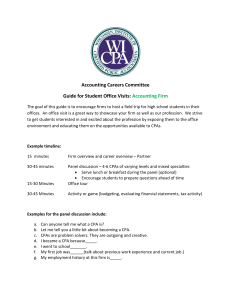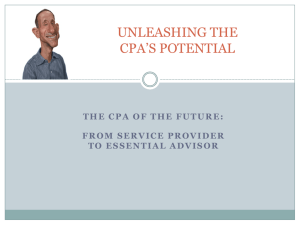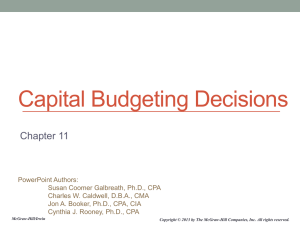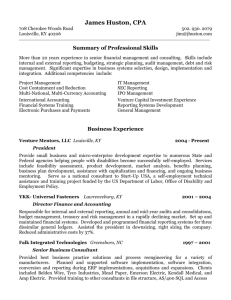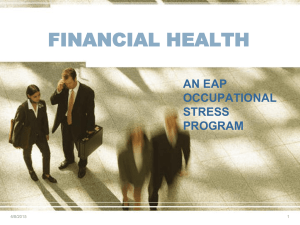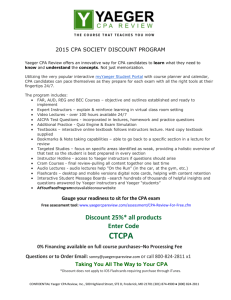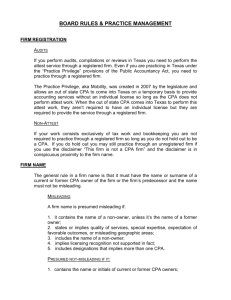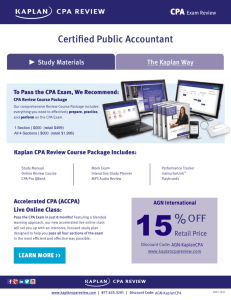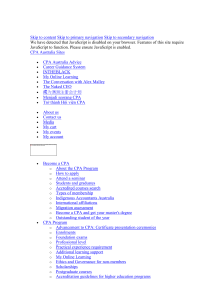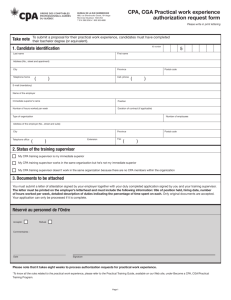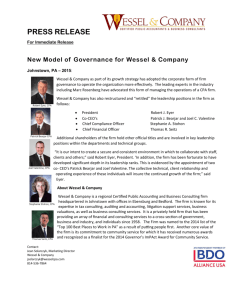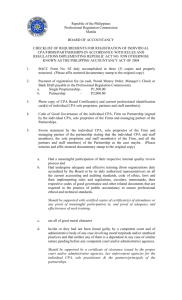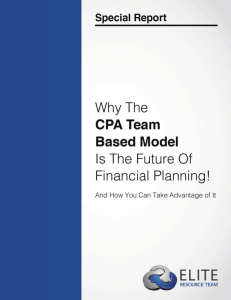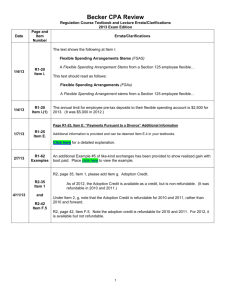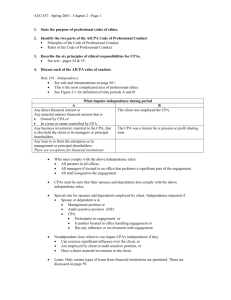Want to grow your business?
advertisement
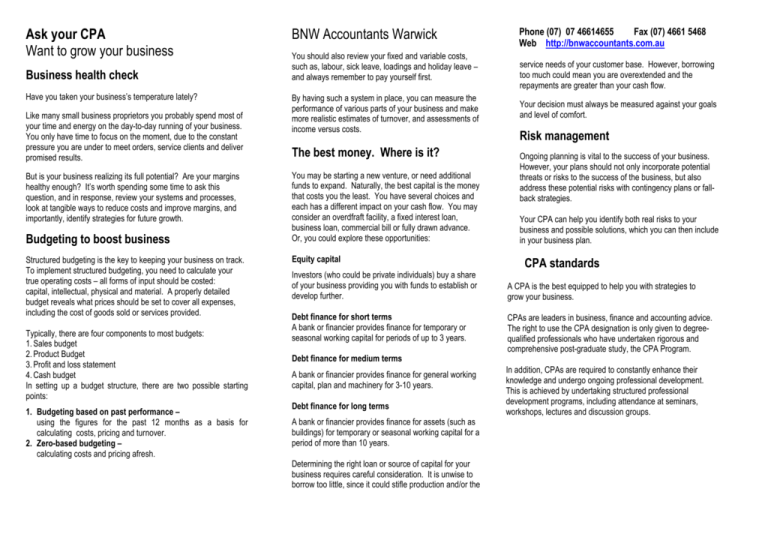
Ask your CPA Want to grow your business Business health check Have you taken your business’s temperature lately? Like many small business proprietors you probably spend most of your time and energy on the day-to-day running of your business. You only have time to focus on the moment, due to the constant pressure you are under to meet orders, service clients and deliver promised results. But is your business realizing its full potential? Are your margins healthy enough? It’s worth spending some time to ask this question, and in response, review your systems and processes, look at tangible ways to reduce costs and improve margins, and importantly, identify strategies for future growth. Budgeting to boost business Structured budgeting is the key to keeping your business on track. To implement structured budgeting, you need to calculate your true operating costs – all forms of input should be costed: capital, intellectual, physical and material. A properly detailed budget reveals what prices should be set to cover all expenses, including the cost of goods sold or services provided. Typically, there are four components to most budgets: 1. Sales budget 2. Product Budget 3. Profit and loss statement 4. Cash budget In setting up a budget structure, there are two possible starting points: 1. Budgeting based on past performance – using the figures for the past 12 months as a basis for calculating costs, pricing and turnover. 2. Zero-based budgeting – calculating costs and pricing afresh. BNW Accountants Warwick You should also review your fixed and variable costs, such as, labour, sick leave, loadings and holiday leave – and always remember to pay yourself first. By having such a system in place, you can measure the performance of various parts of your business and make more realistic estimates of turnover, and assessments of income versus costs. The best money. Where is it? You may be starting a new venture, or need additional funds to expand. Naturally, the best capital is the money that costs you the least. You have several choices and each has a different impact on your cash flow. You may consider an overdfraft facility, a fixed interest loan, business loan, commercial bill or fully drawn advance. Or, you could explore these opportunities: Equity capital Investors (who could be private individuals) buy a share of your business providing you with funds to establish or develop further. Debt finance for short terms A bank or financier provides finance for temporary or seasonal working capital for periods of up to 3 years. Debt finance for medium terms A bank or financier provides finance for general working capital, plan and machinery for 3-10 years. Debt finance for long terms A bank or financier provides finance for assets (such as buildings) for temporary or seasonal working capital for a period of more than 10 years. Determining the right loan or source of capital for your business requires careful consideration. It is unwise to borrow too little, since it could stifle production and/or the Phone (07) 07 46614655 Fax (07) 4661 5468 Web http://bnwaccountants.com.au service needs of your customer base. However, borrowing too much could mean you are overextended and the repayments are greater than your cash flow. Your decision must always be measured against your goals and level of comfort. Risk management Ongoing planning is vital to the success of your business. However, your plans should not only incorporate potential threats or risks to the success of the business, but also address these potential risks with contingency plans or fallback strategies. Your CPA can help you identify both real risks to your business and possible solutions, which you can then include in your business plan. CPA standards A CPA is the best equipped to help you with strategies to grow your business. CPAs are leaders in business, finance and accounting advice. The right to use the CPA designation is only given to degreequalified professionals who have undertaken rigorous and comprehensive post-graduate study, the CPA Program. In addition, CPAs are required to constantly enhance their knowledge and undergo ongoing professional development. This is achieved by undertaking structured professional development programs, including attendance at seminars, workshops, lectures and discussion groups.
